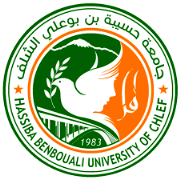The Translator-Interpreter : A Humanitarian Mediator
DOI:
https://doi.org/10.70204/jlt.v3i1.276Palabras clave:
Ethics, Community interpreter, Mediation, Migration, Translator, - InterpreterResumen
This article deals with one of the little-known aspects of the translator-interpreter's profession, a
demanding and exhausting one that has had to adapt to societal changes and developments in
foreign policy that have led to large-scale migratory movements. Migrant flows from subSaharan Africa, in particular, to the north of Africa or across to the other side of the
Mediterranean. But whether from here or elsewhere, is there any training for interpreters who
have to accompany migrants through their translation work? What role does the emotional aspect
play in the interpreter's delicate work? Should the interpreter abandon his or her humanity and
discard any empathy towards the migrant in order to preserve his or her neutrality and
impartiality? Is It obvious to maintain an irreproachable ethical stance when translating emotions
and dealing with cultural elements that echo, in some cases, one's own life experience? These
are the questions that we will try to answer in this paper, which is intended as an introduction to
the new facet of the translator-interpreter's profession, that of humanitarian mediator











